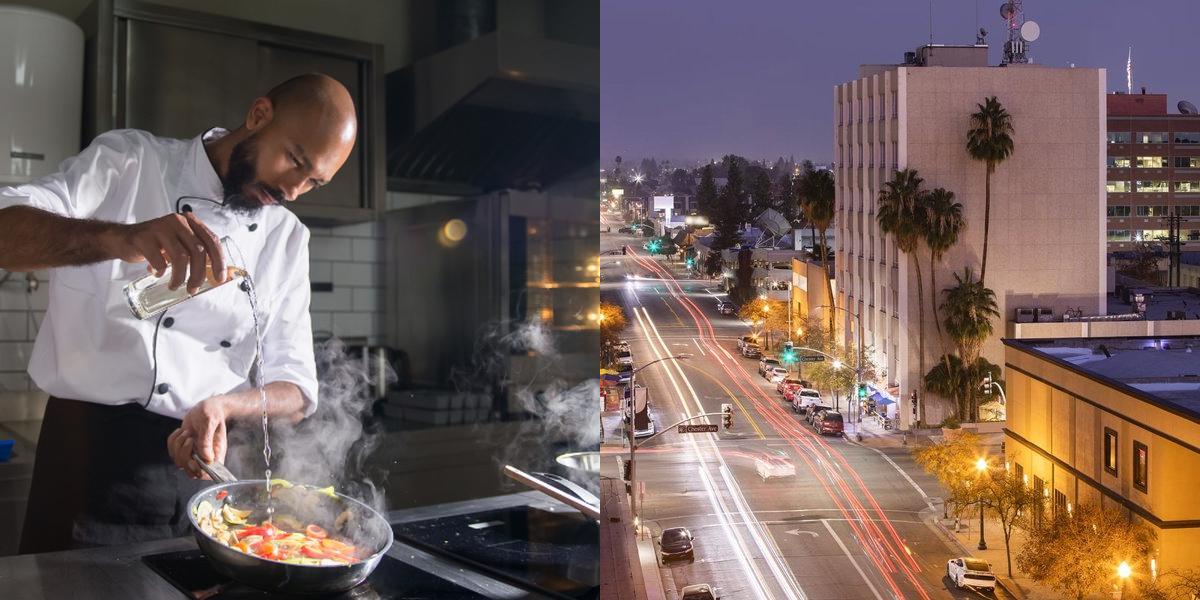How to Become a Chef in California (2025)

If you're looking to turn your passion for food into a professional career in California, becoming a Chef or Head Cook is a creative and high-energy path to success. The state is a culinary mecca, employing over 40,000 of these kitchen leaders who earn a median salary of $70,500 per year, according to the U.S. Bureau of Labor Statistics. This guide provides the definitive 5-step process for navigating culinary school, gaining essential experience, and landing a job in one of the world's top food destinations.
5. Pursue Advanced Education and Specialization
The culinary world is vast. To stand out and increase your earning potential, consider specializing. You could focus on baking and pastry, become a sommelier, or earn advanced certifications from the American Culinary Federation (ACF), such as Certified Sous Chef (CSC) or Certified Executive Chef (CEC).
Where to Find Culinary Arts Classes in California?
Finding a quality culinary program is the first major step in your career, and Dreambound is designed to make that process simple. Dreambound's platform allows you to search, filter, and connect with a vast network of career and technical education partners, including renowned culinary schools and colleges across California. You can compare programs in culinary hubs like Los Angeles, San Francisco, and San Diego based on cost, program length, and curriculum to find the perfect fit. Dreambound is completely free for you to use, and many partner schools offer payment plans or financial aid for those who qualify.
Career Paths and Opportunities after Becoming a Chef
A culinary education and experience open up a world of possibilities:
- Executive Chef: The leader of the kitchen, responsible for all culinary operations.
- Sous Chef: The second-in-command, managing the kitchen on a day-to-day basis.
- Pastry Chef: A specialist who focuses on desserts, breads, and pastries.
- Caterer/Private Chef: Run your own business catering events or cooking for private clients.
- Restaurant Owner: With business acumen and experience, you can open your own establishment.
- Food Writer or Stylist: Combine your culinary knowledge with media skills.
Frequently Asked Questions
What do you need to be a chef in California?
To become a chef in California, you need culinary training from an accredited school or apprenticeship, a food handler’s card and ServSafe certification, and 1–2 years of kitchen experience for entry-level roles.
Do you need a license to be a personal chef in California?
No, but liability insurance and business registration may be required, depending on your location.
What are the benefits of being a chef?
The top benefits of being a chef include competitive salaries in high-end establishments, opportunities to travel, flexible career paths (from restaurants to private cooking), and the satisfaction of creating memorable dining experiences!
How much do restaurant cooks make in California?
Entry-level cooks typically earn $16-20 per hour ($33,280-$41,600 annually), while experienced cooks make $22-28 per hour ($45,760-$58,240 annually). In major cities like San Francisco and Los Angeles, salaries can be 15-25% higher. Head cooks and chefs earn significantly more, with experienced professionals making $65,000-$85,000+ annually!
Final Thoughts
Becoming a chef in California can be a fulfilling and creative career path. With the right education, certifications, and experience, you can turn your culinary passion into a rewarding job in restaurants, catering, or even private kitchens.
Dreambound makes it easy to find and compare culinary programs near you—so why wait? Start your journey today and cook up a career you’ll love!
Looking for a better fit? These other articles could be more in line with your expectations if this one isn't precisely what you had in mind:

Harold Roldan is a Growth team member at Dreambound. With a background in IT, he works with data and automation to improve team efficiency and workflows. He spends his free time playing musical instruments or studying data, computers, and technology.



